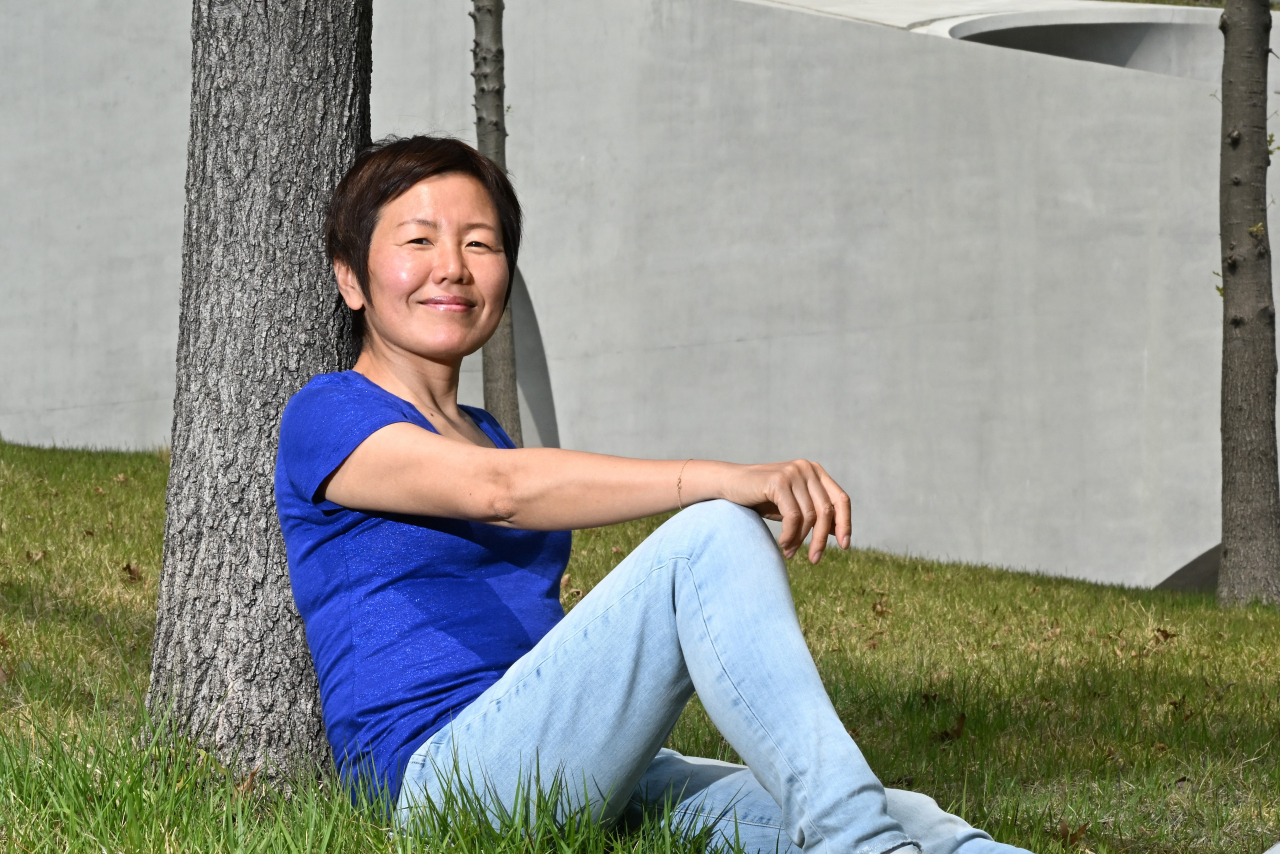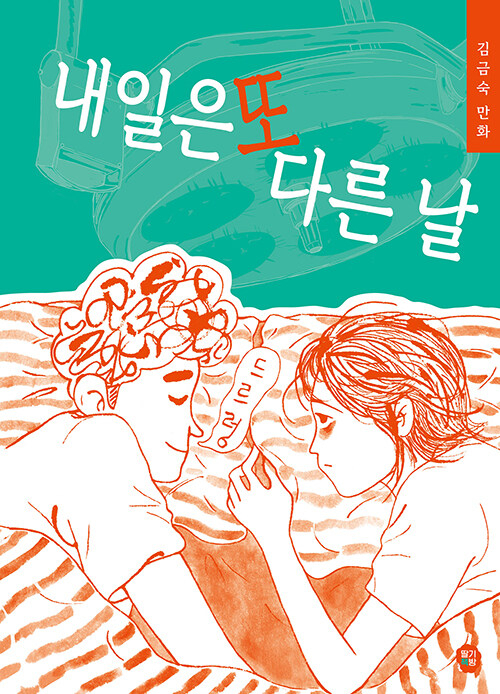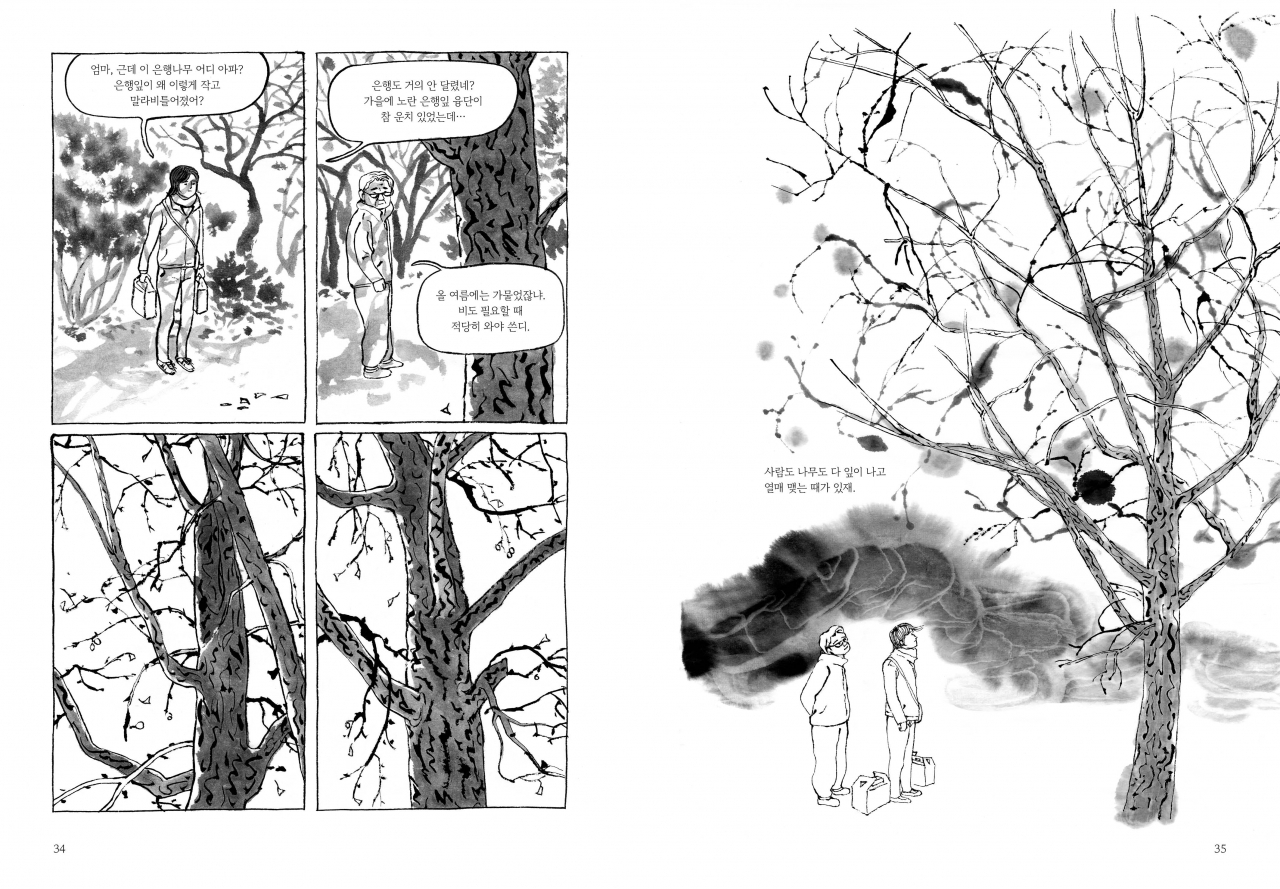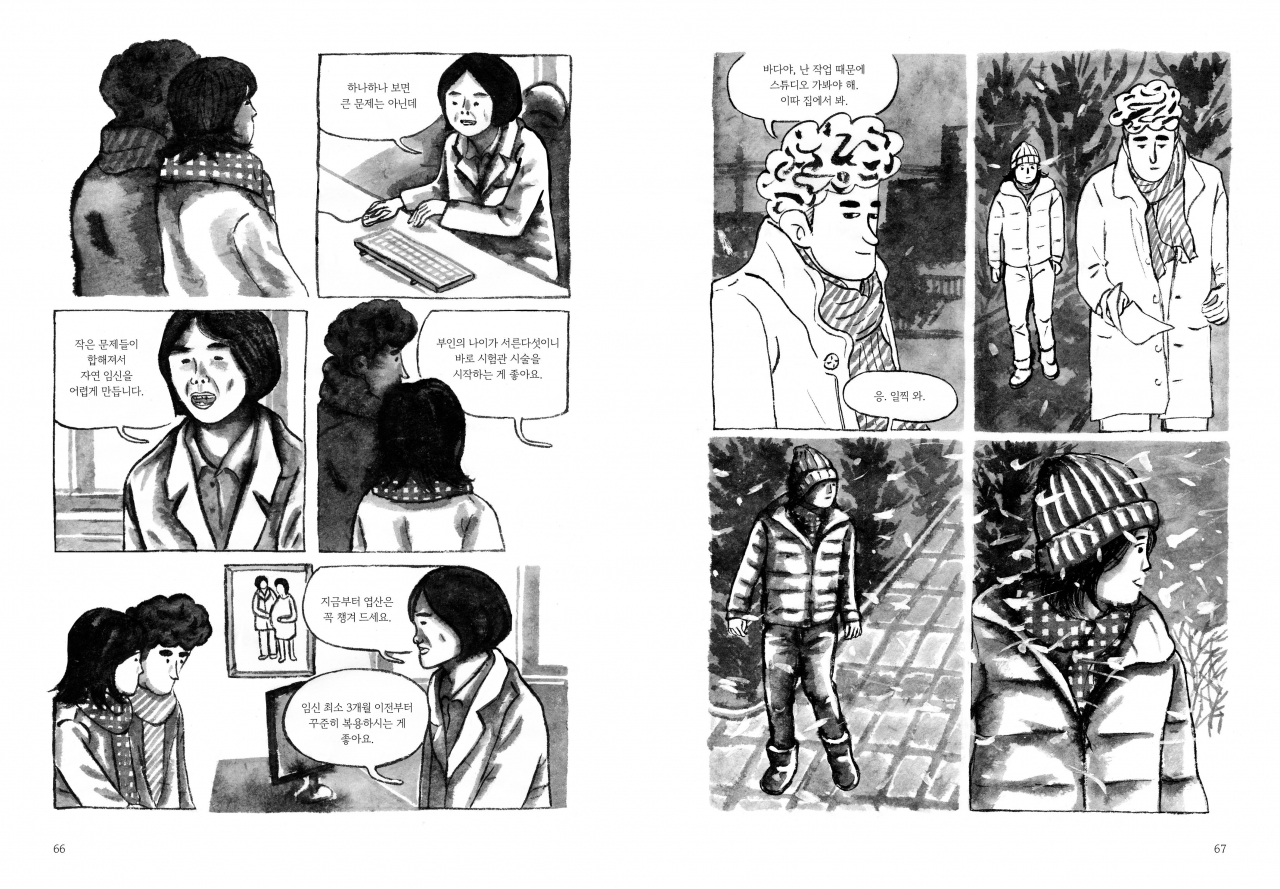[Herald Interview] Keum Suk Gendry-Kim talks about life choices in 'Tomorrow is Another Day'
Harvey Award-winning graphic novelist draws on struggles of infertility
By Hwang Dong-heePublished : June 6, 2023 - 09:42

Celebrated graphic novelist Keum Suk Gendry-Kim has returned with “Tomorrow is Another Day,” a story of a couple grappling with infertility.
Garnering global acclaim, her works -- most notably “Grass” (2017) and “The Waiting” (2020) -- have been recognized with numerous awards, including the Harvey Award in 2020 for "Grass." She is the first Korean to have won the prestigious award.
Gendry-Kim's latest work centers on Bada, a 34-year-old cartoonist, and her husband San, who decide to undergo an in vitro fertilization procedure. The book follows their poignant journey, vividly capturing Bada's physical challenges and emotional struggles.

“The story follows a couple who wants to have a child and attempts to conceive a baby, but faces multiple setbacks. But the core of the story is about decision-making,” Gendry-Kim said in an interview with The Korea Herald on May 15.
“I wanted to talk about how we make decisions and show that it’s just another path among many roads one can take.”
The narrative primarily follows Bada, but Gendry-Kim also pays attention to portraying diverse voices, offering different perspectives on the issue.
Bada’s family, including her parents and her in-laws, reflect society’s patriarchal norms, which pressure women to carry on the family lineage. Bada’s two friends show contrasting choices: One who sacrifices her career to have a baby and another who opts for a single, independent lifestyle.
Through Bada's husband, the book also sheds light on the male perspective -- often neglected in the discourse of infertility -- highlighting the emotional and social pressures experienced by a man whose partner undergoes infertility treatment.


Body, nature and life
Gendry-Kim first came upon the topic of infertility in 2011 during a challenging, painful phase in her personal life. Approaching 50 and surviving the pandemic, she decided to finally share a story about womens’ bodies, lives and difficult choices they have to make.
“Around 50, a woman’s body undergoes various changes, including menopause, and I found myself in the stage of embracing the body of a middle-aged woman,” Gendry-Kim said.
The timing was also fitting, given the growing discussions around low birth rates and an aging society in South Korea.
“Many years have passed (since 2011), and I wanted to portray (the story) in a calm manner without any exaggeration. While drawing, I kept reminding myself to cut out excessive emotions,” Gendry-Kim added. The undertaking, spanning two years, took twice as long as her others works as she refined each scene.
Employing her distinctive style of using “meok,” or traditional Korean ink, Gendry-Kim draws on black-and-white art, skillfully utilizing a range of grey shades.
Through brush strokes, watery ink and smudges, she captures the essence of melancholy and emotional turmoil and tribulations, while also showcasing the beautiful rural landscape as a work of art in itself.
“I do have a profound love for nature,” she said. “But when I was going through a difficult time, I saw this nature -- the seemingly lifeless trees and grass in winter -- suddenly burst with so much vibrant energy.”
“Sadly, the human body, though it’s also a part of nature, does not follow that cycle.”
Gendry-Kim said that Bada is heartbroken upon realizing the stark contrast between her own aging body and the cycle of nature. However, Bada also draws courage from nature’s resilience.
In the final chapter, Gendry-Kim incorporates watercolors to convey this newfound sense of hope.
“I wanted readers to find solace through my book. I wanted to emphasize that regardless of the life one chooses, it is not a failure simply because it differs from social expectations of what is ‘right,’” she said. “Different choices can still lead to happiness.”

Female narratives and universality
In Gendry-Kim’s works, the female narrative takes center stage as it navigates the tragic and turbulent times of Korean history.
“Grass” portrays the life of a “comfort woman,” or a victim of Japan’s wartime sexual slavery. The story was based on the testimony of comfort woman Lee Ok-sun, from Busan.
“The Waiting” revolves around the heart-wrenching stories of families separated during the 1950-53 Korean War, inspired by the personal experiences of the artist’s mother.
The artist said she never expected international readers to be so deeply engaged with her stories, which draw on Korea’s painful historical traumas.
“I think readers reflect their own history and personal pain,” said Gendry-Kim.
“For example, ‘The Waiting’ is about families separated during times of war. And many people around the world have experienced, witnessed or learned about war and its lasting aftermath. There are still victims and families affected by such events.”
She added that universality is present in the narratives of women who were marginalized and discriminated against.
“I didn’t expect to receive so many international awards because my primary motivation was simply to tell the stories I wanted to share,” Gendry-Kim said. “But the recognition does have significant meaning for me, because it tells me that I have been on the right track.”
The English translation edition of “The Naked Tree” will be released worldwide in September, published by Drawn and Quarterly. Translated by Janet Hong, the book draws inspiration from Korean writer Park Wan-suh’s debut novel of the same title. The story depicts the agony of the younger generation in post-war Seoul in the 1950s, as they try to overcome the wounds of the past and find hope for the future.
In the interview with Keum Suk Gendry-Kim published June 5, the article incorrectly identified Lee Ok-sun, a comfort woman who passed away in December 2022. Gendry-Kim was referring to a surviving comfort woman also named Lee Ok-sun from Busan. We regret the error. -- Ed.







![[Graphic News] More Koreans say they plan long-distance trips this year](http://res.heraldm.com/phpwas/restmb_idxmake.php?idx=644&simg=/content/image/2024/04/17/20240417050828_0.gif&u=)
![[KH Explains] Hyundai's full hybrid edge to pay off amid slow transition to pure EVs](http://res.heraldm.com/phpwas/restmb_idxmake.php?idx=644&simg=/content/image/2024/04/18/20240418050645_0.jpg&u=20240419100350)






![[From the Scene] Monks, Buddhists hail return of remains of Buddhas](http://res.heraldm.com/phpwas/restmb_idxmake.php?idx=652&simg=/content/image/2024/04/19/20240419050617_0.jpg&u=20240419175937)

![[KH Explains] Hyundai's full hybrid edge to pay off amid slow transition to pure EVs](http://res.heraldm.com/phpwas/restmb_idxmake.php?idx=652&simg=/content/image/2024/04/18/20240418050645_0.jpg&u=20240419100350)

![[Today’s K-pop] Illit drops debut single remix](http://res.heraldm.com/phpwas/restmb_idxmake.php?idx=642&simg=/content/image/2024/04/19/20240419050612_0.jpg&u=)